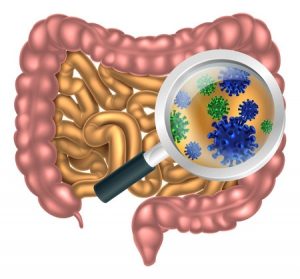Leaky Gut Syndrome

Leaky Gut Syndrome is referred to as Intestinal Permeability. This involves damage or alterations to the lining of the bowel. Because this means the bowel is more permeable, toxins, microbes and undigested food can leak through the gut wall. These leaking substances can cause so many problems in the rest of the body when the leak through the intestine. This is what leads to the symptoms that are associated with leaky gut syndrome.
Symptoms of Leaky Gut Syndrome
Most people who have Leaky Gut Syndrome don’t even realize they have it. The problem with diagnosing it is that it is associated with many possible symptoms. These people may occasionally get symptoms of it but not realize it or ignore it thinking it is from something else.
Most common symptoms of Leaky Gut are:
- Excessively passes wind (flatulence)
- Chronic abdominal pain
- Occurrences of diarrhea
- Feeling bloated
- Heartburn
- Problems sleeping at night time
- Chronic depression
- Chronic fatigue
- Muscular pain in joints
- Muscle cramps
- Skin problems
- Hungry most of the time
- No tolerance or low tolerance for exercise
- Malnutrition
- Anal irritation or hemorrhoids
- Shortness of breath on occasion
- Swollen lymph glands
- Allergic reactions to food
- Liver dysfunction
- Mental fog (memory problems)
- Recurrence of bladder infections
Causes of Leaky Gut Syndrome
The most common causes of Leaky Gut Syndrome which is an increased permeability in the gut wall are:
- Allergies
- Excessive stress
- Parasitic infections
- Eating an unbalanced diet
- Celiac disease
- Hypochlorydria (a condition that causes low production of stomach acid)
- Excessive alcohol
- Reactions to pharmaceutical drugs
- Candidiasis (thrush)
- Dysbiosis involving microbial imbalances in the body.
Treatment for Leaky Gut Syndrome
There are quite a few things that individuals with Leaky Gut Syndrome can do to treat the condition such as:
- Obtain a stool test to check for the presence of parasites. If it is positive then it is possible to eradicate the parasite with supplements.
- Probiotics – one of the most common treatments as it is necessary to encourage the growth of good bacteria in the gut.
- Changes to the current diet can help improve the symptoms. These can include reducing sugar intake, avoiding caffeine, avoiding alcohol and eating more whole foods instead of the processed kind.
- Glutamine – repairs the lining of the intestine and reduces damage and inflammation.
- Avoiding carbonated soft drinks.
- Stress management techniques to assist with relaxation.
